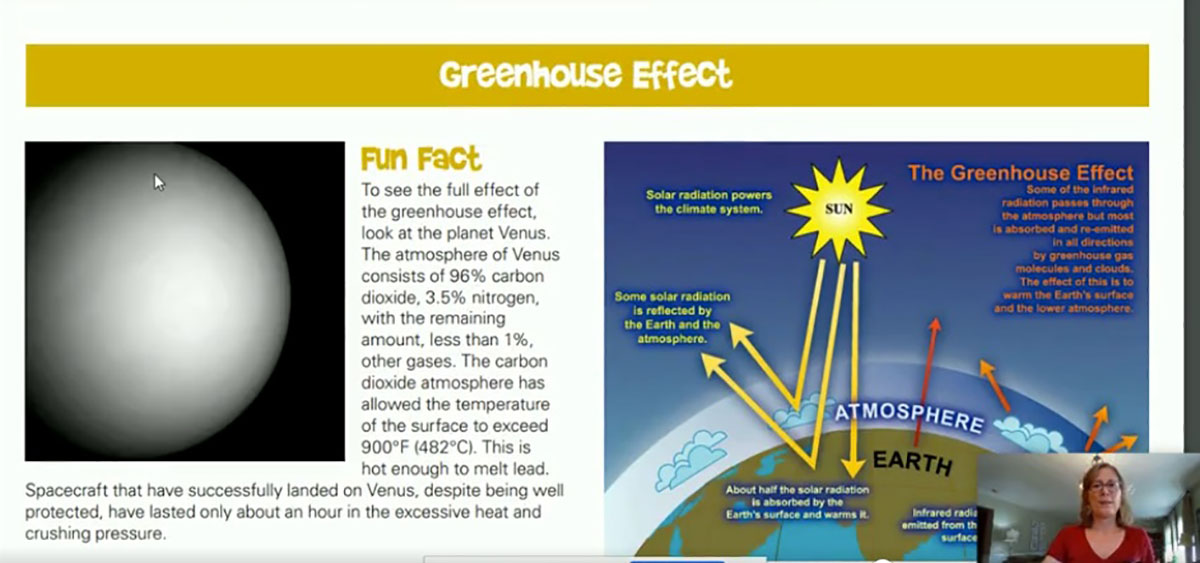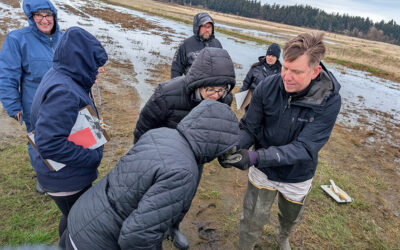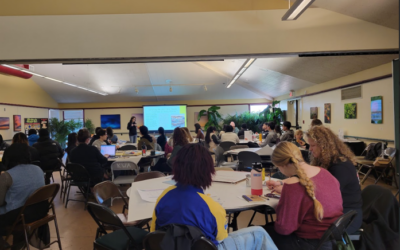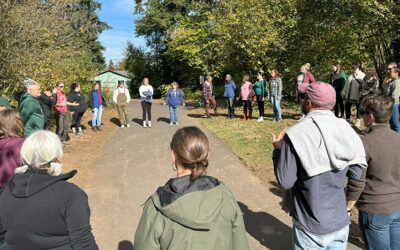During the week of October 19th, 2020, 17 teachers from the Puget Sound region attended a three-day online workshop, Solutions Oriented Learning Storylines: Renewable Energy-Solar, with Pacific Education Institute’s FieldSTEM Coordinators Molly Griffiths, Tressa Arbow and Hattie Osborne along with local community partners.
To begin the workshop series, Molly acknowledged the land that she resides on and gave time for the participants to research the lands they currently occupy. The participants later completed an asynchronous activity to learn more about their local tribal nations and think about actionable steps to incorporate tribal history and perspectives in their classrooms. During the first session, participants heard from Itsa Shash, a Native American storyteller. Itsa shared lessons about the sun and shared with teachers how to promote deeper understanding with students. Many participants noted in their evaluation that incorporating storytelling into their science instruction is a new way to connect their students to the place they reside.
The second session introduced participants to Ari and Miguel from Olympia Community Solar. Ari and Miguel shared how solar energy, energy equity and community solar projects are taking steps towards justice and equity for all especially Black Indigenous People of Color (BIPOC) communities; they also highlighted several community solar projects across the state and country including the Hummingbird Community Solar project in Olympia, WA. After hearing from the community partner, participants shared their tribal nation research in small groups. Multiple participants expressed that learning about local Indigenous communities was a new opportunity for them and they will carry this into their classrooms. Participants blended the idea of energy equity from Olympia Community Solar with the teachings from Itsa to think about climate science in a new way.
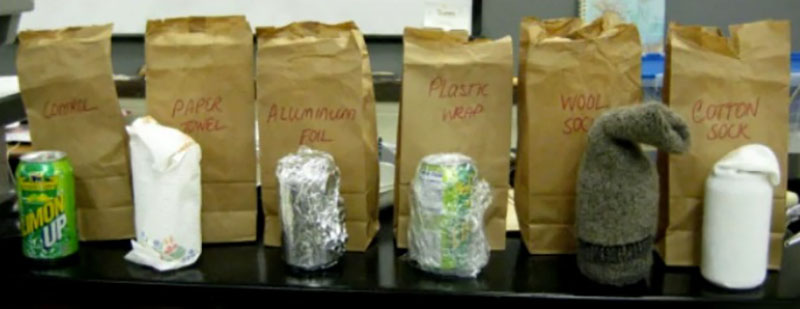
A participant explores different materials and how they interact with light energy.
In the last session, educators learned about best practices in science education by discussing three-dimensional formative assessment strategies and the use of PEI’s Solutions Oriented Learning Storylines: Renewable Energy- Solar to teach climate science in developmentally appropriate, locally relevant ways. PEI will be facilitating additional Renewable Energy- Solar workshops in Spring 2021.

